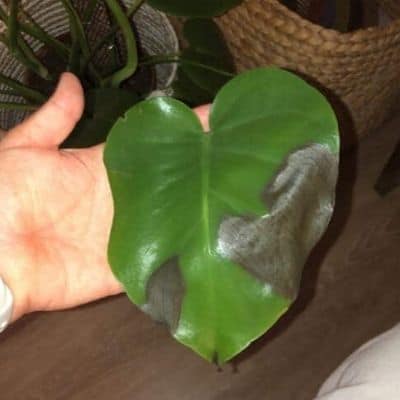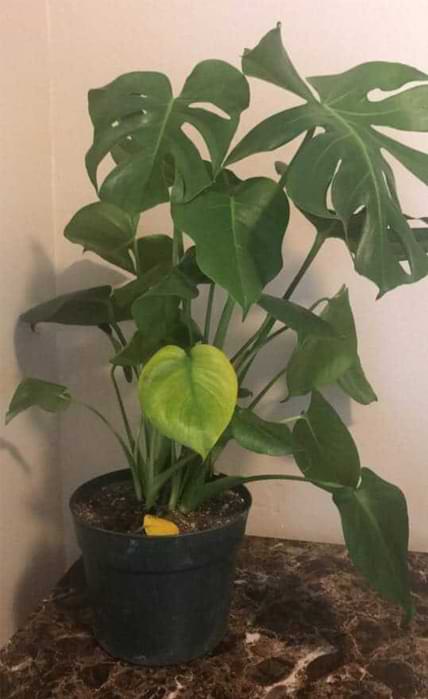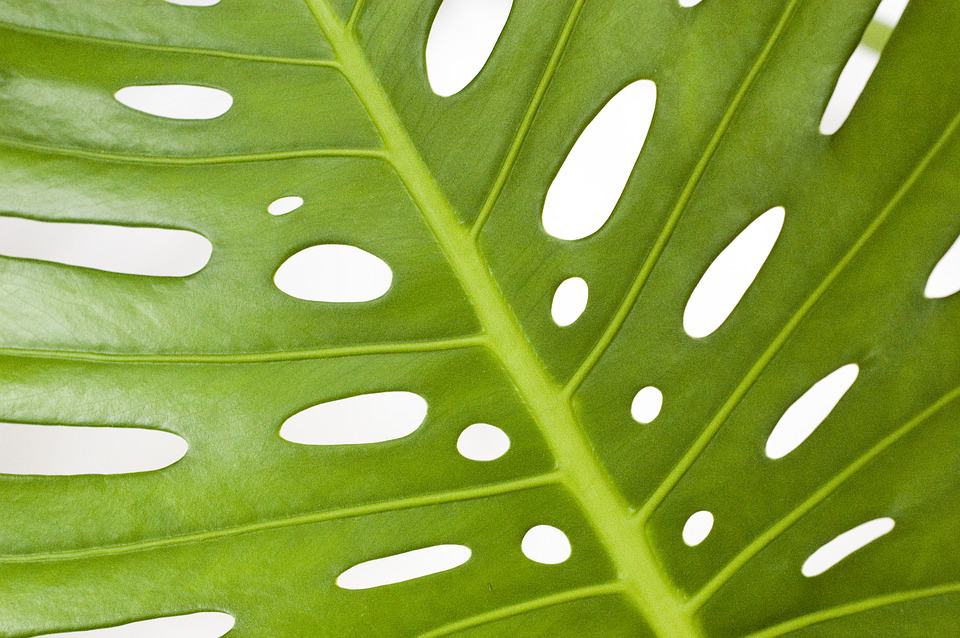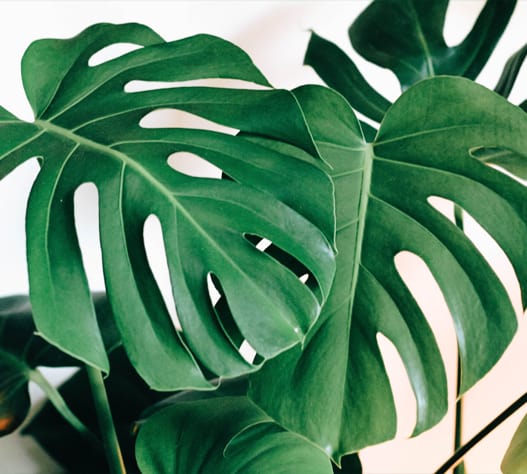One of the biggest challenges with any plant is learning how to water it properly. Luckily, monsteras are good at telling you when they’ve had too much water! There are a few signs that tell you your monstera is over-watered, but first, let’s talk about WHY over-watering is so dangerous.
Table of Contents
Risks of Over-Watering
On the extreme side, the biggest risk of over-watering is root rot, which can kill your plant if it’s not treated right away.
Over-watering can also increase the risk of bacterial infections and attract certain insects like fungus gnats.
Of course, under-watering causes problems too, but it’s better to err on the side of under-watering if you aren’t sure. That’s a far easier problem to correct. You can always add water, but taking it away is a lot harder! (Though there are steps you can take, which we’ll get into later.)
Read our ultimate guide to watering your monstera here!
Now let’s go over the signs to look out for that indicate your monstera is over-watered.
Signs Your Monstera Is Over-Watered
Sign #1: Dark brown spots on the leaves

Dark brown spots are a telltale sign of root rot, which is caused by over-watering. This issue needs to be treated quickly to prevent spreading!
What to do: If you notice these spots and the soil feels wet, carefully remove the monstera from its pot to inspect the roots. If you notice any dark, mushy, or stinky roots, prune them and gently remove as much of the old soil as possible before repotting in dry, clean soil in a clean pot with good drainage. (You can use a new pot or clean the old one.)
Once you’ve repotted, make sure your monstera gets plenty of bright, indirect sunlight and go easy on the water for a little while. You may also want to remove the most damaged leaves. If there are a few leaves with just a teeny bit of browning, you can leave those. Keep an eye on your monstera to make sure the spotting doesn’t spread.
A root rot treatment is also a good idea at this point.
Sign #2: Yellow leaves or stems

Yellowing is a milder sign that your monstera might be over-watered. There are other causes, but if you notice this sign, check the moisture level (with a moisture meter like this) of the soil to be safe (which you should do every time you water). If you notice the soil is wet and it’s been a week after you’ve watered, you might be giving it too much or your pot might not be draining well.
If this doesn’t seem to be the case, yellowing can also indicate that your plant is lacking nutrients and it’s time to fertilize!
What to do: To solve this problem, make sure your monstera gets great light and scale back on your watering. The yellow leaves should turn green again once the problem is corrected.
Sign #3: Fungus in the soil
If you notice mold growing on top of your soil or mushrooms growing around the base of your monstera, that’s a good indication that your plant is getting too much water and not enough light!
It can also mean that some fungus got into the pot another way, like from dirty tools or a dirty pot. Increasing light and adjusting water will help you solve that problem too.
What to do: Once you’ve adjusted the light and water, you can scoop the fungus out of the soil and add some fresh soil on top. You can also sprinkle a little cinnamon on top of the soil because it’s a natural antifungal.
If you notice any strange spotting on your leaves or if the fungus returns, you may need to repot your monstera into a clean pot.
Sign #4: Soil takes more than 10 days to dry out
We advise that you always check the moisture of your monstera’s soil before watering and only water when the top two inches are dry.
However, your monstera should be ready for a drink about every 7-10 days. If you’re going longer between waterings, you might be giving your plant more water than it can handle, which can lead to root rot and discoloring.
What to do: If you’re running into this issue, try scaling back the amount of water you give your monstera, but try to stay on the 7- to 10-day schedule.
If your soil is staying wet for too long, you may also want to use a “lighter” soil mix. Try mixing half cactus mix or orchid bark into your soil or check out our Premium Indoor Potting Mix, which is designed to prevent over-watering.
It’s all about reading the signs
Luckily, monsteras can be forgiving plants and they’re very good at telling you what they want! Watch your plant carefully and learn what to watch for and what these signs mean. With practice, you’ll be a pro at reading your monstera in no time!





